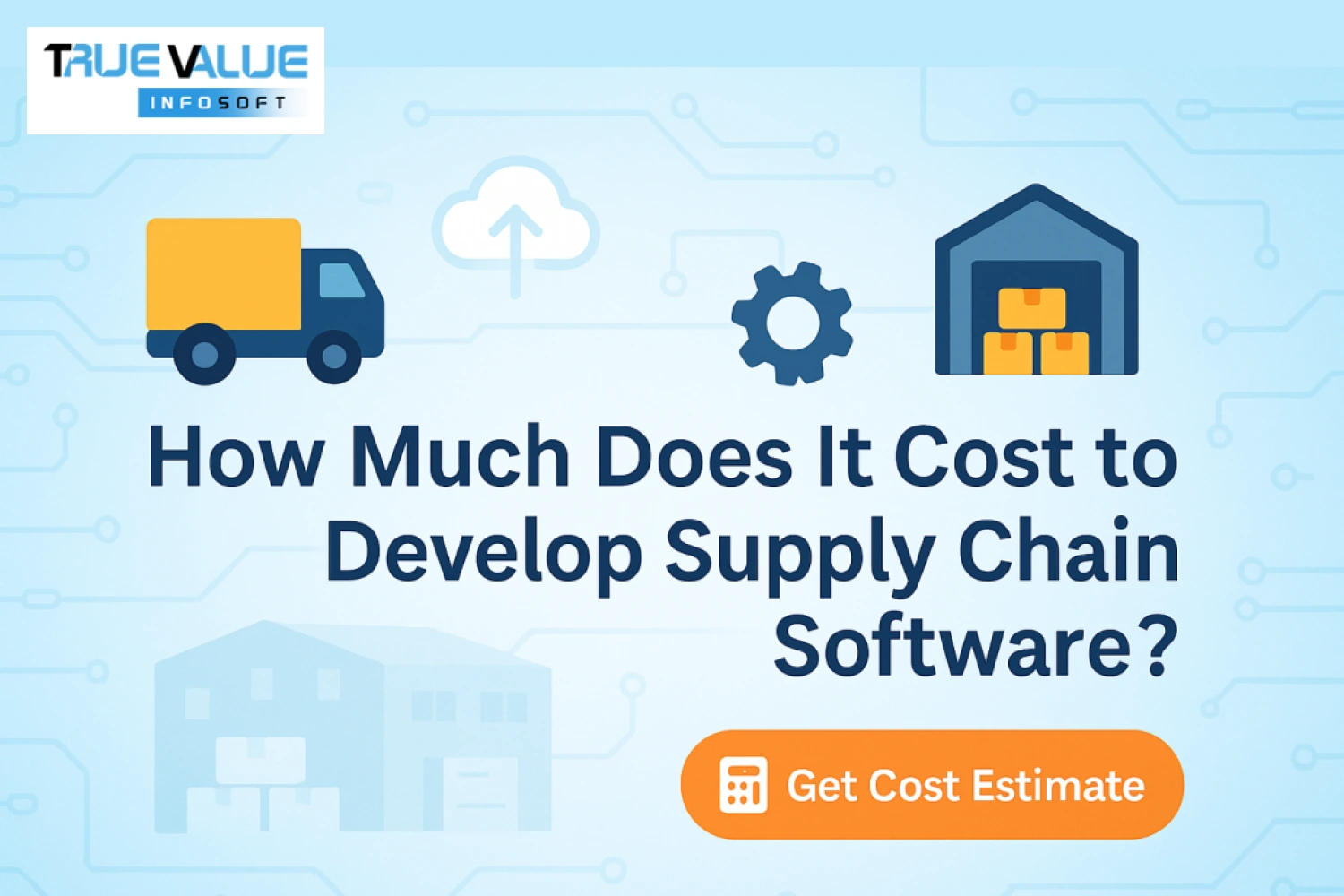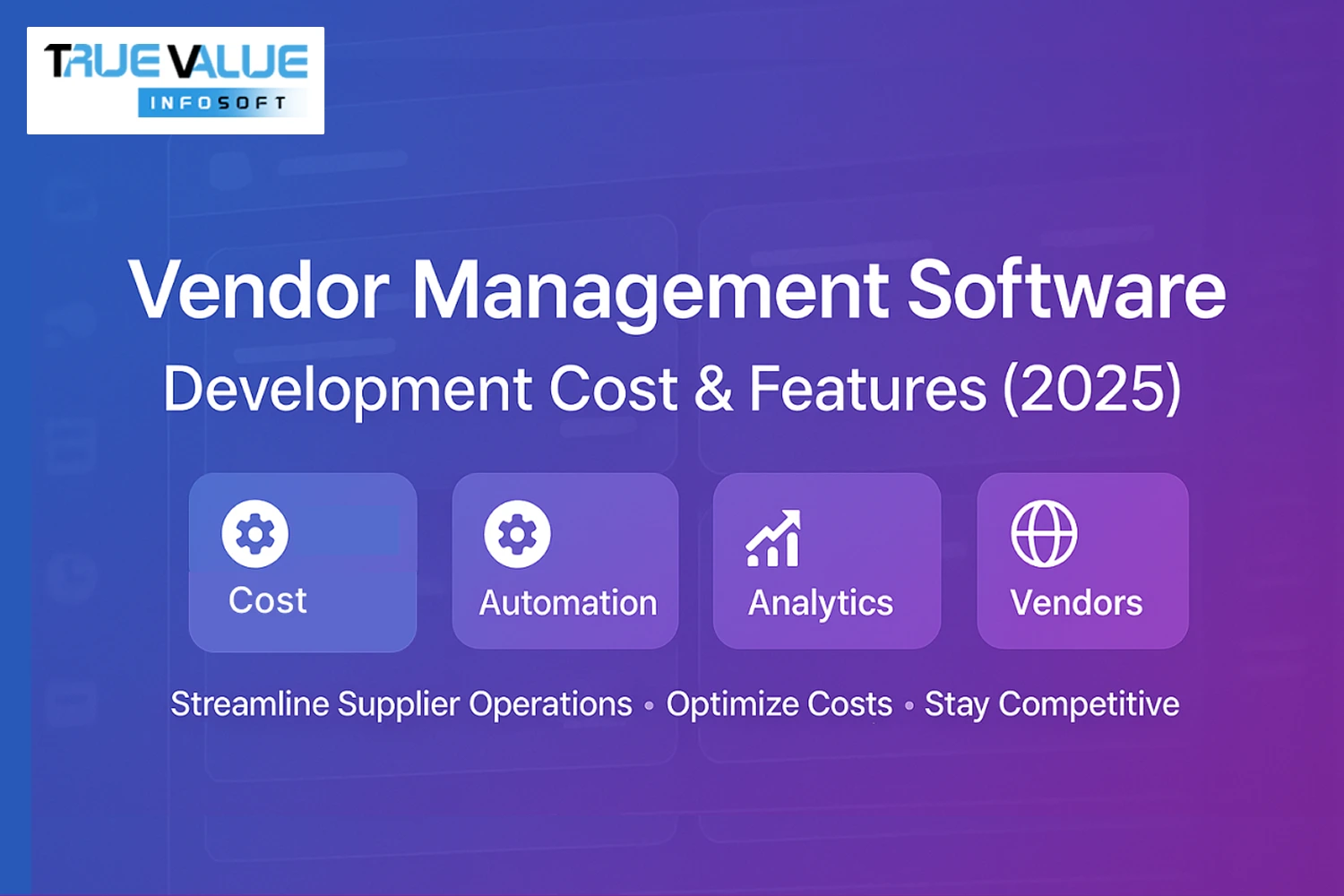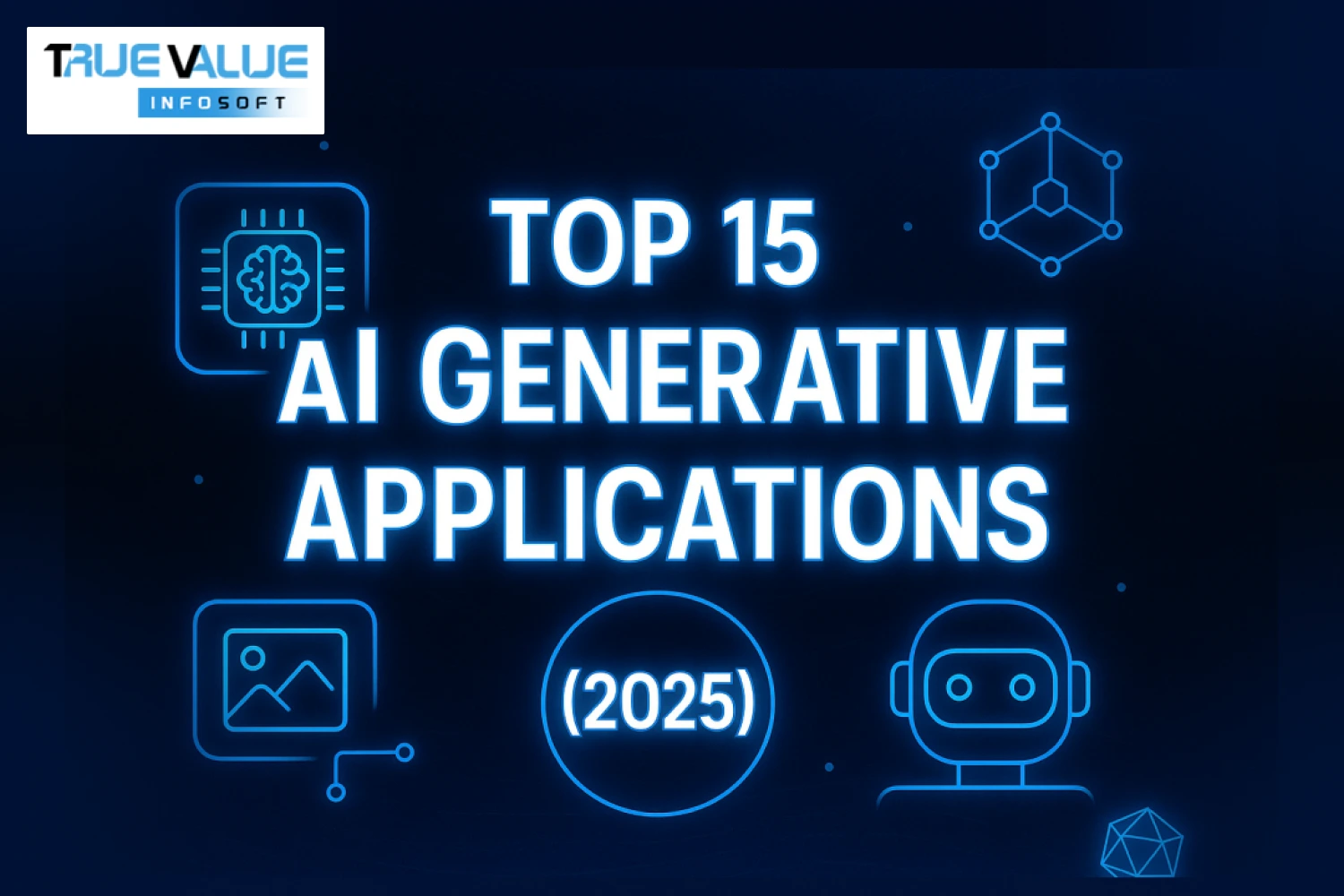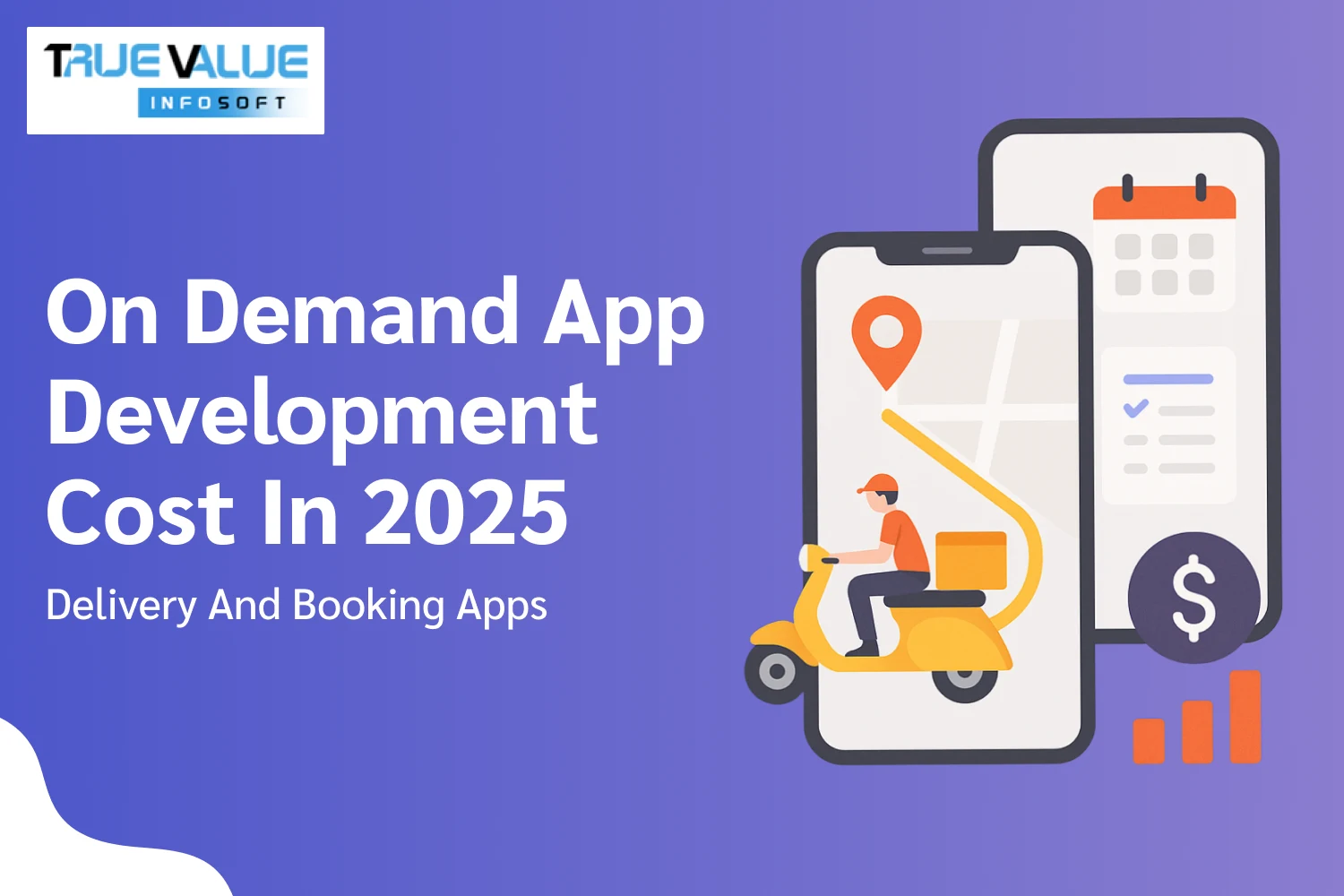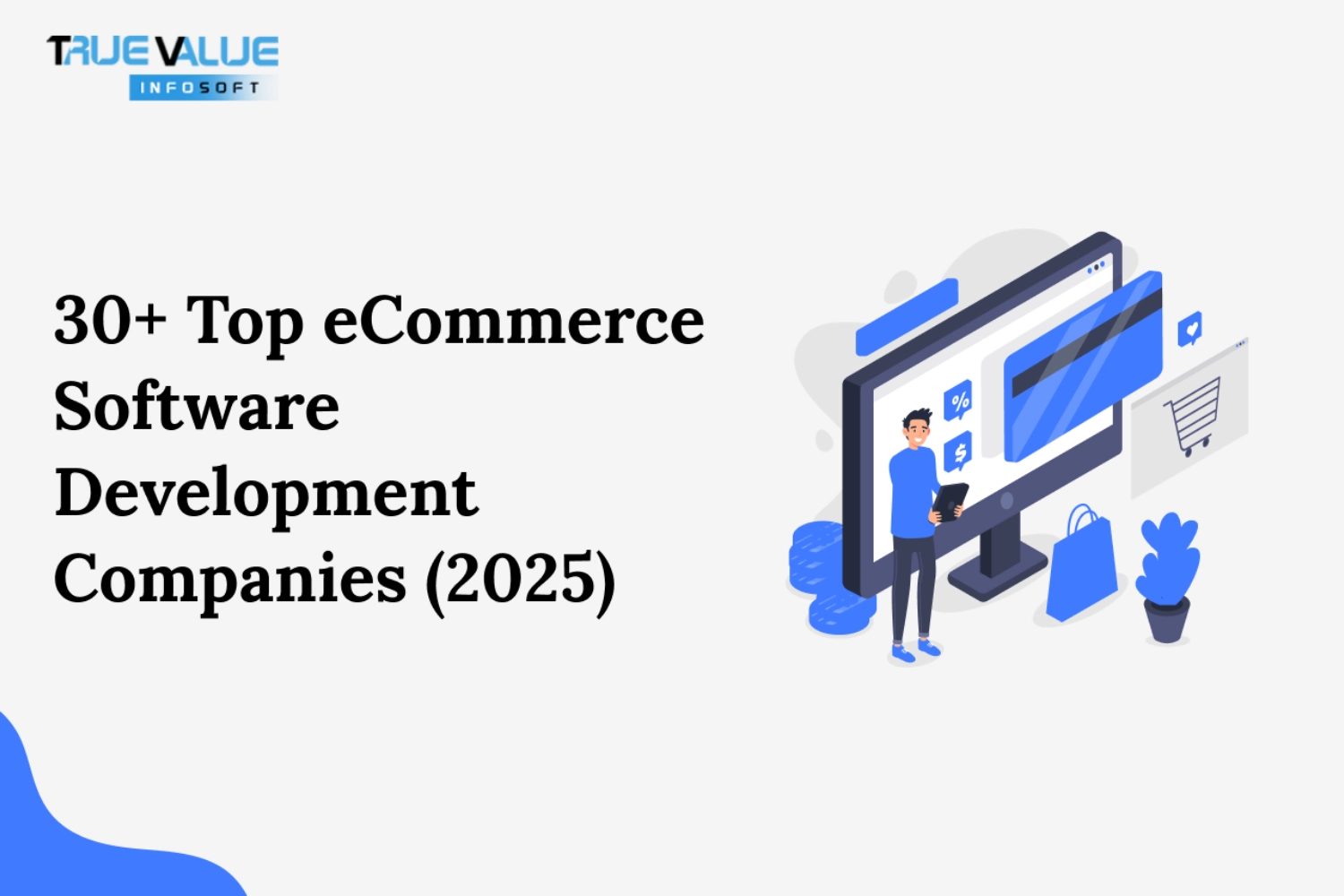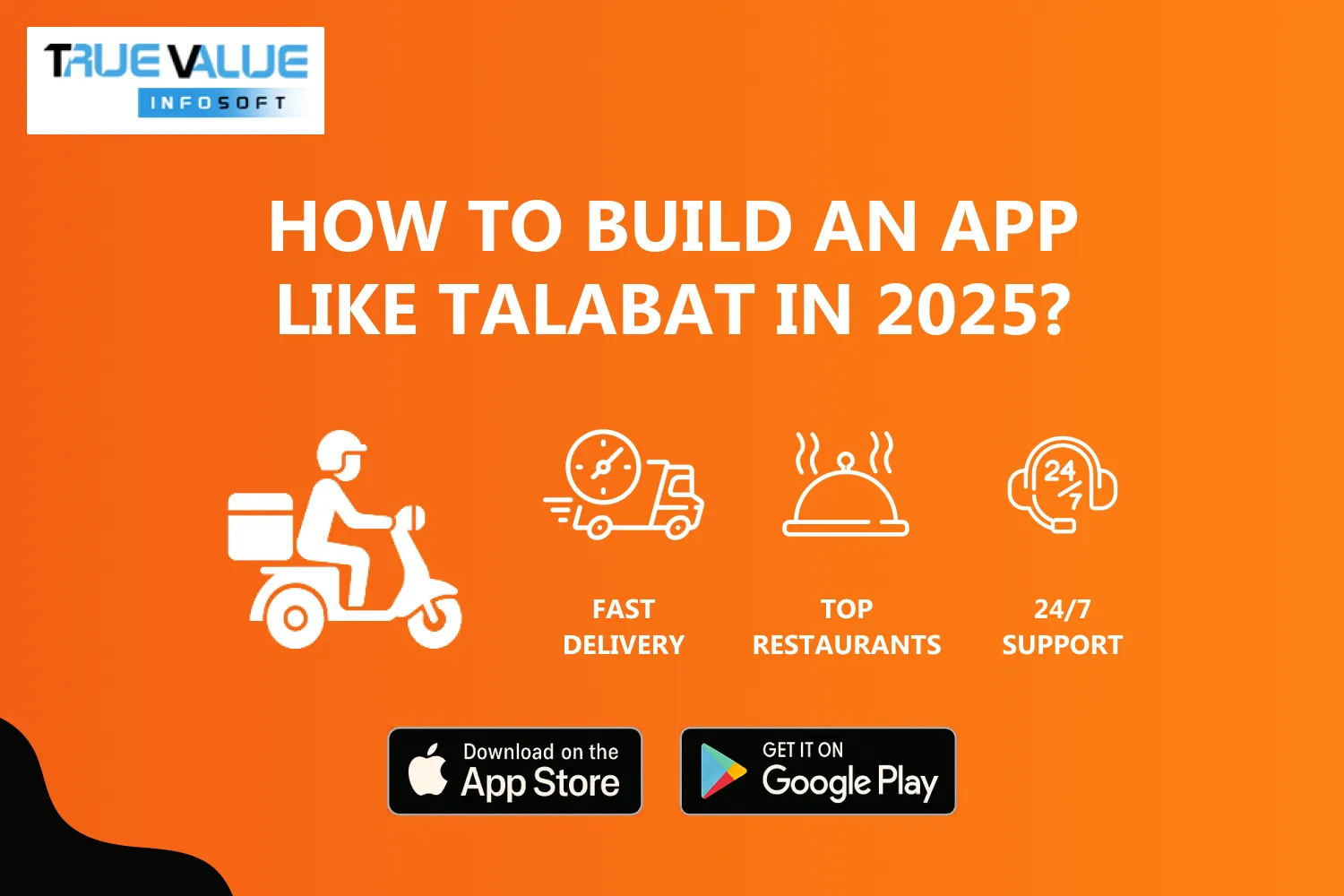Introduction
Are you looking to streamline your logistics, improve inventory visibility, and enhance your end-to-end operations with smart technology? If yes, then investing in custom supply chain software might be the game-changer your business needs. In today’s fast-paced digital economy, managing a supply chain efficiently is no longer a luxury—it’s a necessity. Whether you’re in retail, manufacturing, or e-commerce, modern supply chain software can automate workflows, reduce errors, cut costs, and improve customer satisfaction.
But here's the big question: How much does it actually cost to develop a supply chain software solution in 2025?
This blog breaks down every aspect of supply chain software development, including features, types, development stages, key influencing factors on cost, and real-world examples. If you're planning to build a robust, scalable, and AI-integrated system, choosing the right development partner is crucial. That’s where True Value Infosoft, mobile app development company in India, comes into the picture. With our deep experience in logistics and enterprise software, we offer tailor-made solutions aligned with your business goals.
Let’s dive into what goes into building an efficient supply chain management (SCM) software system—and how much you should expect to invest in 2025.
What is Supply Chain Software?
Supply Chain Software is a comprehensive suite of digital tools and platforms that manage and streamline various components of the supply chain process—from procurement and inventory to logistics, distribution, and customer delivery. It ensures real-time tracking, automation, analytics, and seamless communication among stakeholders.
The core objective of this software is to optimize operations, reduce inefficiencies, improve visibility, and strengthen supplier relationships.
Why Businesses Need Custom Supply Chain Software in 2025
As markets become more competitive and customer expectations skyrocket, businesses must embrace automation and data intelligence. Off-the-shelf software often lacks the flexibility and scalability that modern enterprises require.
Custom-built supply chain software can offer:
- Industry-specific modules
- End-to-end process automation
- Real-time data integration
- Forecasting and predictive analytics
- Custom reports and dashboards
In 2025, integrating AI, machine learning, blockchain, and IoT into SCM systems is not just beneficial—it’s essential for gaining a competitive edge.
Key Features of Supply Chain Software
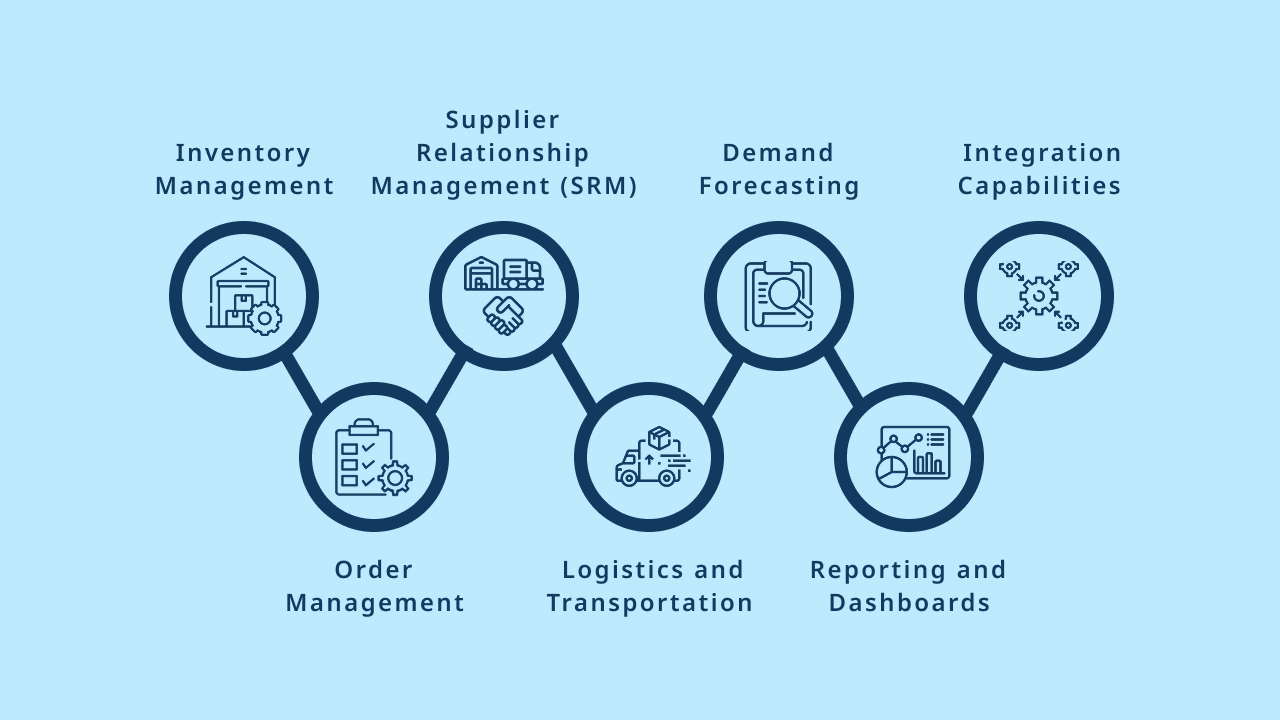
A high-functioning supply chain software should ideally include the following core features:
A. Inventory Management
- Real-time inventory tracking
- Automated reordering
- Warehouse synchronization
B. Order Management
- Order processing
- Shipment tracking
- Return handling
C. Supplier Relationship Management (SRM)
- Communication tools
- Performance evaluation
- Contract management
D. Logistics and Transportation
- Route optimization
- Fleet tracking
- Delivery ETA predictions
E. Demand Forecasting
- Sales trends
- Predictive analytics
- Seasonality insights
F. Reporting and Dashboards
- KPI tracking
- Custom data visualization
- Compliance monitoring
G. Integration Capabilities
- ERP, CRM, and payment gateway integration
- Barcode and RFID support
- API connectivity
Types of Supply Chain Management Software
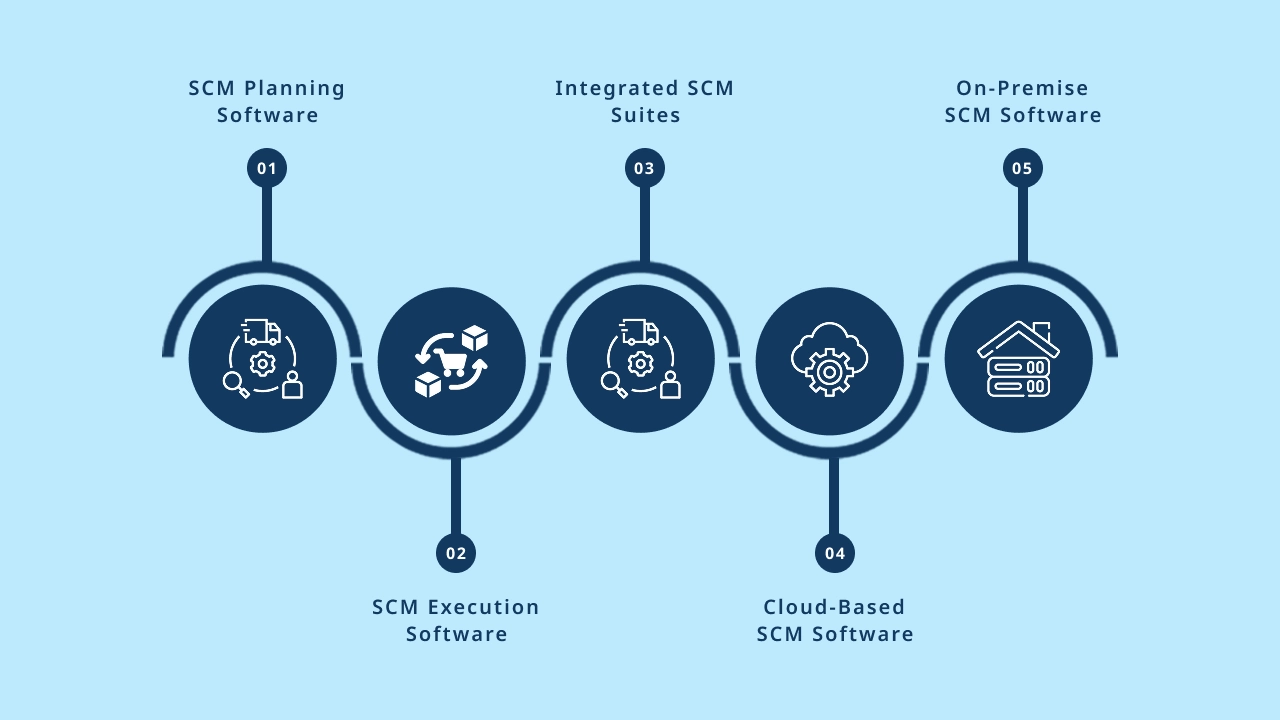
Depending on your business size and needs, you can opt for different types of supply chain solutions:
- SCM Planning Software – Focuses on forecasting, demand planning, and resource management.
- SCM Execution Software – Manages order fulfillment, warehouse operations, and shipping.
- Integrated SCM Suites – Combines both planning and execution functionalities.
- Cloud-Based SCM Software – Offers scalability, remote access, and lower upfront costs.
- On-Premise SCM Software – Offers full control and customization, ideal for large enterprises.
Cost of Developing Supply Chain Software: An Overview
Estimated Cost Range in 2025:
| Project Size | Estimated Cost (USD) |
|---|---|
| MVP / Basic System | $25,000 – $50,000 |
| Mid-Level Software | $50,000 – $120,000 |
| Enterprise-Level | $120,000 – $500,000+ |
The final cost varies based on feature complexity, design, tech stack, team expertise, and region.
Factors Affecting Development Cost
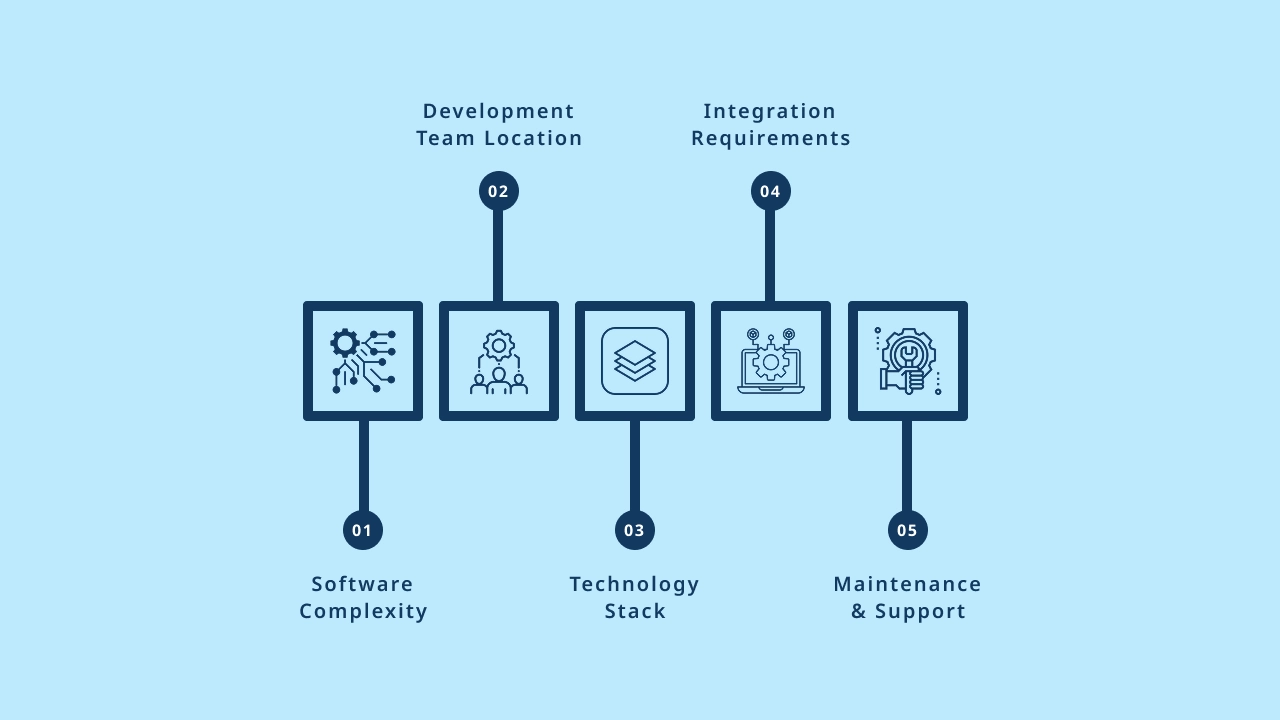
1. Software Complexity
More modules and custom workflows = higher cost.
2. Development Team Location
Developers in India ($25–$50/hour) are more affordable than those in the U.S. or Europe ($100–$200/hour).
3. Technology Stack
Using modern stacks (e.g., MEAN, MERN) or AI-driven solutions can influence costs.
4. Integration Requirements
Connecting with ERPs, CRMs, IoT devices, etc., adds to development time and budget.
5. Maintenance & Support
Annual costs may range from 15%–25% of the initial build.
Stages of Supply Chain Software Development
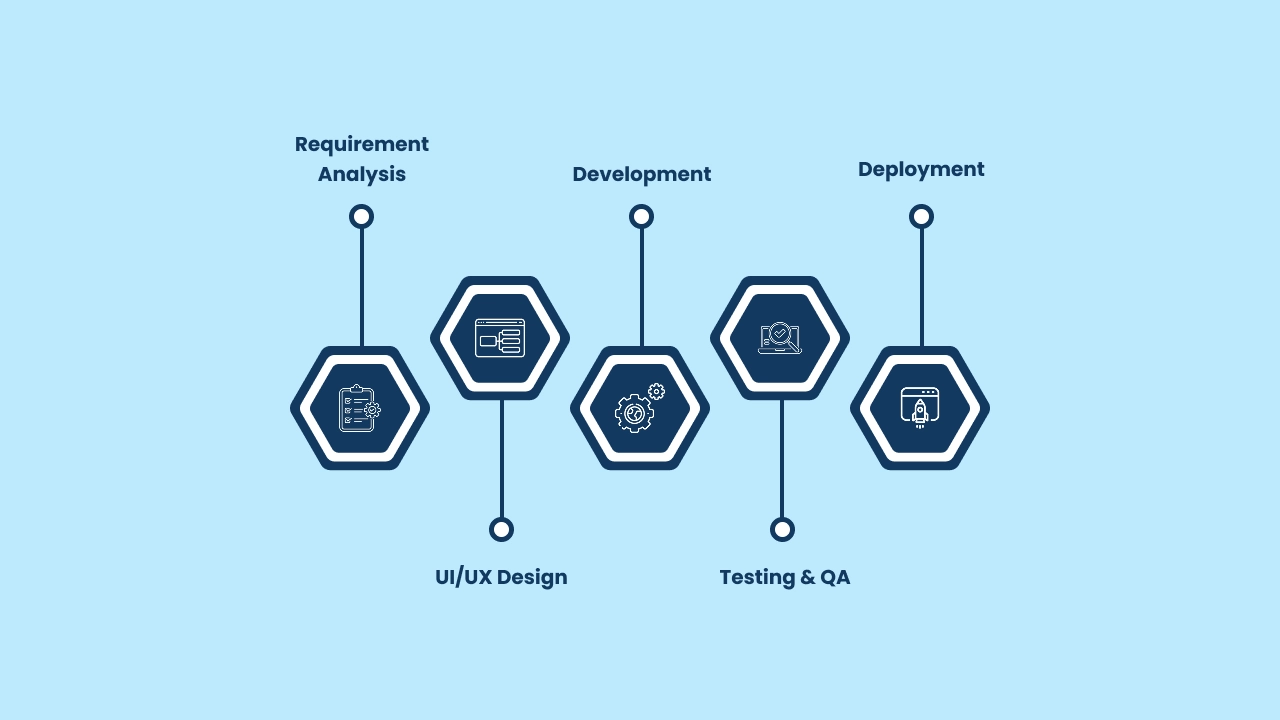
1. Requirement Analysis
Understanding business needs, supply chain workflows, and stakeholder expectations.
2. UI/UX Design
Creating intuitive dashboards, data visualizations, and role-based access views.
3. Development
Frontend, backend, database, APIs, and third-party integrations.
4. Testing & QA
Functional, performance, and security testing.
5. Deployment
Cloud or on-prem deployment, domain configuration, and database migration.
Technologies Used in Supply Chain Software
- Frontend: React, Angular, Vue.js
- Backend: Node.js, Python (Django), Java
- Databases: MySQL, PostgreSQL, MongoDB
- Cloud Platforms: AWS, Azure, Google Cloud
- AI/ML: TensorFlow, PyTorch
- IoT: Azure IoT Hub, AWS IoT
- Blockchain: Hyperledger, Ethereum (for smart contracts)
AI and IoT in Modern SCM Software
In 2025, AI and IoT are revolutionizing supply chains:
- AI Use Cases:
- Predictive analytics for demand
- Dynamic pricing models
- Chatbots for supplier and customer queries
- IoT Use Cases:
- Smart warehousing
- Real-time fleet tracking
- Cold chain monitoring
Implementing AI and IoT increases upfront development costs but saves operational costs long-term.
Case Studies: Companies Who Built SCM Software
1. Amazon
Their proprietary SCM tech includes robotics, AI forecasting, and real-time inventory management.
2. Maersk
Uses blockchain to track cargo movements across borders securely.
3. Walmart
Custom-built solutions for inventory forecasting and supplier management using big data and AI.
These companies invested millions, but smaller firms can replicate key components on a modest budget with the right development partner.
Build vs. Buy: Which is Better?
| Criteria | Build | Buy |
|---|---|---|
| Customization | High | Low |
| Upfront Cost | High | Medium |
| Long-term Cost | Lower (after ROI) | Higher (subscription fees) |
| Scalability | High | Moderate |
| Time to Market | Longer | Faster |
If you have unique requirements and long-term vision, building your own SCM software is the smarter move.
Why Choose True Value Infosoft for Supply Chain Software Development?
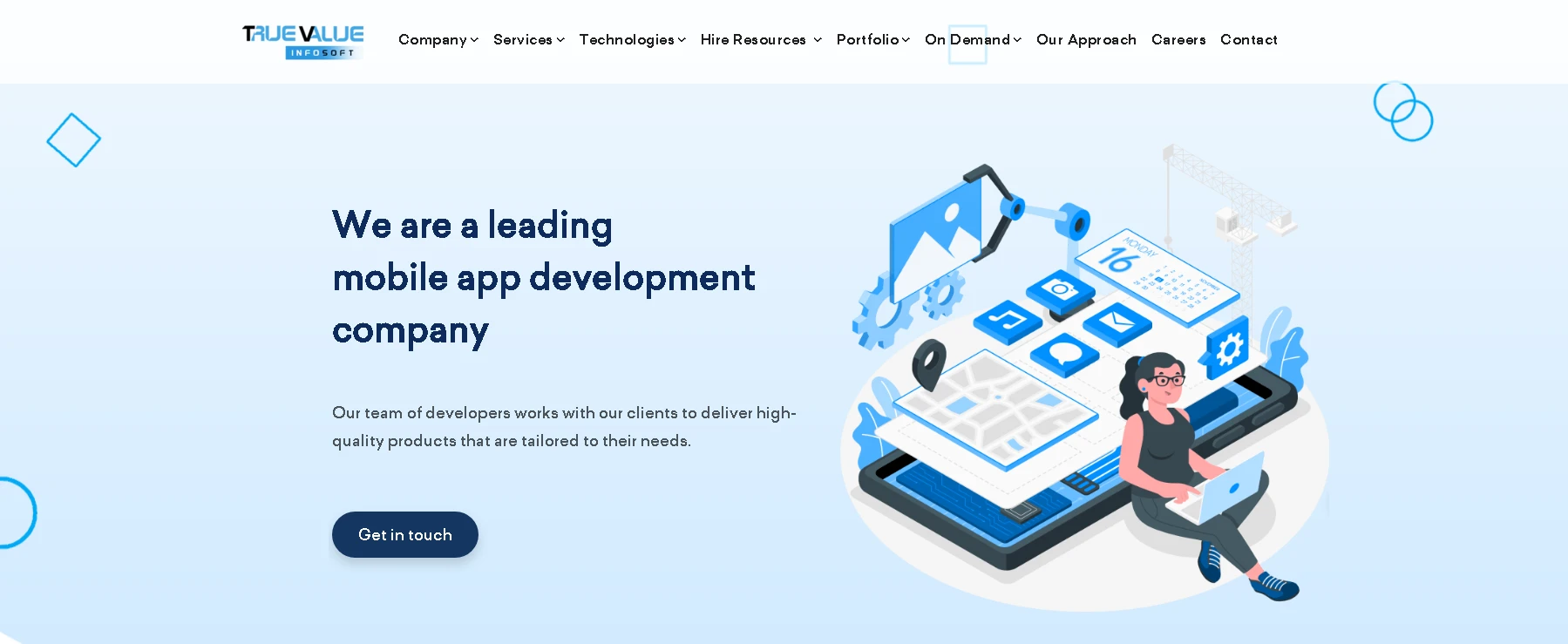
True Value Infosoft, mobile app development company in India, has a proven track record in delivering enterprise-grade supply chain solutions that are smart, scalable, and secure.
Why Clients Trust Us:
- 10+ years of industry experience
- Tailor-made development approach
- Expertise in AI, IoT, and Blockchain
- End-to-end project management
- Real-time analytics and dashboards
- Focus on data security and compliance
- 24/7 support and maintenance
From MVPs for startups to full-fledged enterprise platforms, True Value Infosoft delivers solutions that power digital transformation in supply chains.
Conclusion
Supply chain software is no longer optional—it’s a strategic tool for efficiency, cost reduction, and competitive advantage. While the development cost can vary widely based on your needs and ambitions, a well-planned investment will yield long-term savings and business growth. Whether you're a logistics startup or a large manufacturer, the right SCM system can dramatically improve performance.
Partnering with True Value Infosoft, App Development Company, ensures you get a future-ready, scalable, and AI-enhanced supply chain solution—on time and within budget.
FAQs
Typically, 4–8 months depending on the features and team size.
Yes, True Value Infosoft specializes in ERP, CRM, and third-party integrations.
Cloud-based is ideal for scalability and cost-efficiency, while on-premise offers more control.
Annual maintenance typically costs 15%–25% of the total development cost.
Yes, we provide continuous support, updates, and system enhancements.
